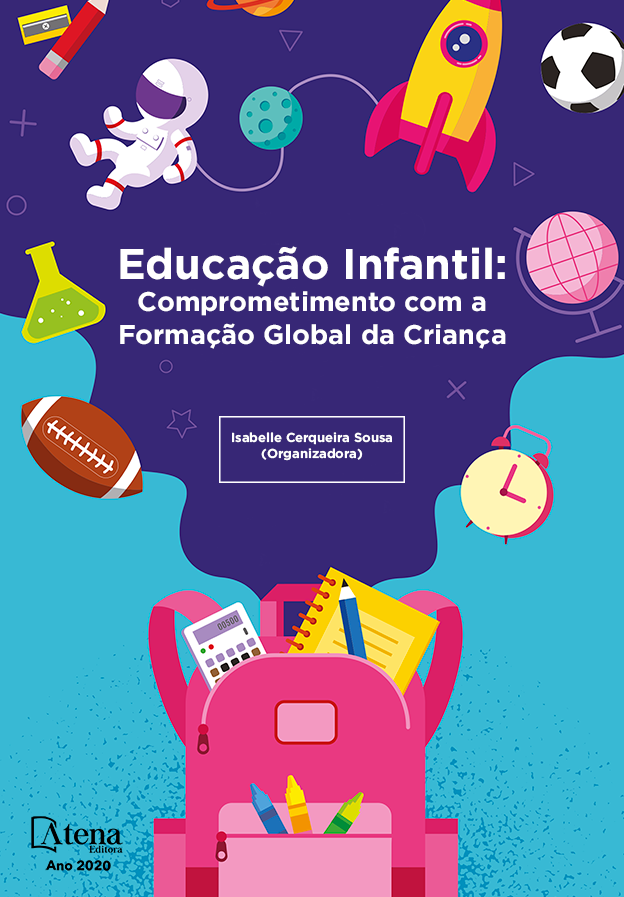
AS PRÁTICAS ALIMENTARES DOS BEBÊS NA CRECHE: ALGUMAS CONSIDERAÇÕES
Este texto advém de uma pesquisa de mestrado, situada na Linha de Pesquisa Infância e Educação Infantil, do Programa de Pós-Graduação Em Educação da Faculdade de Educação (FAE) da Universidade Federal de Minas Gerais (UFMG). O objetivo desta pesquisa é compreender como ocorrem as práticas de alimentação dos bebês entre um e dois anos de idade em uma turma de uma Escola Municipal de Educação Infantil (EMEI) em Belo Horizonte. A pesquisa de abordagem qualitativa foi realizada com observação participante, registros escritos e fotográficos e entrevistas semi-estruturadas com professoras, auxiliares e coordenação pedagógica. Os estudos sobre a temática da alimentação dos bebês na creche tem sido mais recorrentes em áreas da saúde como: Medicina, Nutrição e Psicologia. Contudo, a escola de educação infantil compartilha com as famílias a responsabilidade pela alimentação de bebês e crianças pequenas e por isso é relevante que a temática seja também estudada pela âmbito da Educação. O Referencial teórico baseado nos estudos da Infância e Educação, possibilitam ampliar a reflexão da temática para além da compreensão da prática alimentar infantil como um mero ato de nutrição e promoção da saúde mas também tendo em vista a dimensão educativa dessa prática social que envolve ações indissociadas de cuidado e educação. Ficou evidente durante as observações das práticas alimentares da turma pesquisada, que a organização dos tempos influenciam diretamente as experiências dos bebês durante a alimentação, pois os tempos estabelecidos para a alimentação geralmente são apressados e tendem a desfavorecer tais experiências em toda a sua dimensão educativa. Apesar disso, no que diz respeito a participação dos bebês durante a alimentação, foi perceptível a agência deles, que participaram de maneira ativa das suas refeições, exercitando o desenvolvimento da autonomia, criando estratégias para comer e interagir no espaço coletivo de educação.
AS PRÁTICAS ALIMENTARES DOS BEBÊS NA CRECHE: ALGUMAS CONSIDERAÇÕES
-
DOI: 10.22533/at.ed.3512001106
-
Palavras-chave: Bebês. Cuidado. Educação. Alimentação. Creche.
-
Keywords: Babies. Care. Education. Food. Nursery.
-
Abstract:
This text comes from a master's research, located in the Childhood and Early Childhood Research Line, of the Postgraduate Course in Education at the Faculty of Education (FAE) of the Federal University of Minas Gerais (UFMG). The objective of this research is to understand how the feeding practices of babies between one and two years of age occur in a class at a Municipal School of Early Childhood Education (EMEI) in Belo Horizonte. The research with a qualitative approach was carried out with participant observation, written and photographic records and semi-structured interviews with teachers, assistants and pedagogical coordination. Studies on the theme of infant feeding at daycare have been more frequent in health areas such as: Medicine, Nutrition and Psychology. However, the early childhood education school shares the responsibility for feeding babies and young children with families and, therefore, it is relevant that the theme is also studied within the scope of Education. The theoretical framework based on the studies of Childhood and Education, makes it possible to expand the reflection of the theme beyond the understanding of infant feeding practice as a mere act of nutrition and health promotion but also in view of the educational dimension of this social practice that involves inseparable actions care and education. It was evident during the observations of the dietary practices of the researched class, that the organization of times directly influences the babies' experiences during feeding, since the times established for feeding are usually rushed and tend to disadvantage these experiences throughout their educational dimension. Despite this, with regard to the participation of babies during feeding, their agency was noticeable, who actively participated in their meals, exercising the development of autonomy, creating strategies to eat and interact in the collective space of education.
-
Número de páginas: 8
- Deise Bruna Massena Leite


